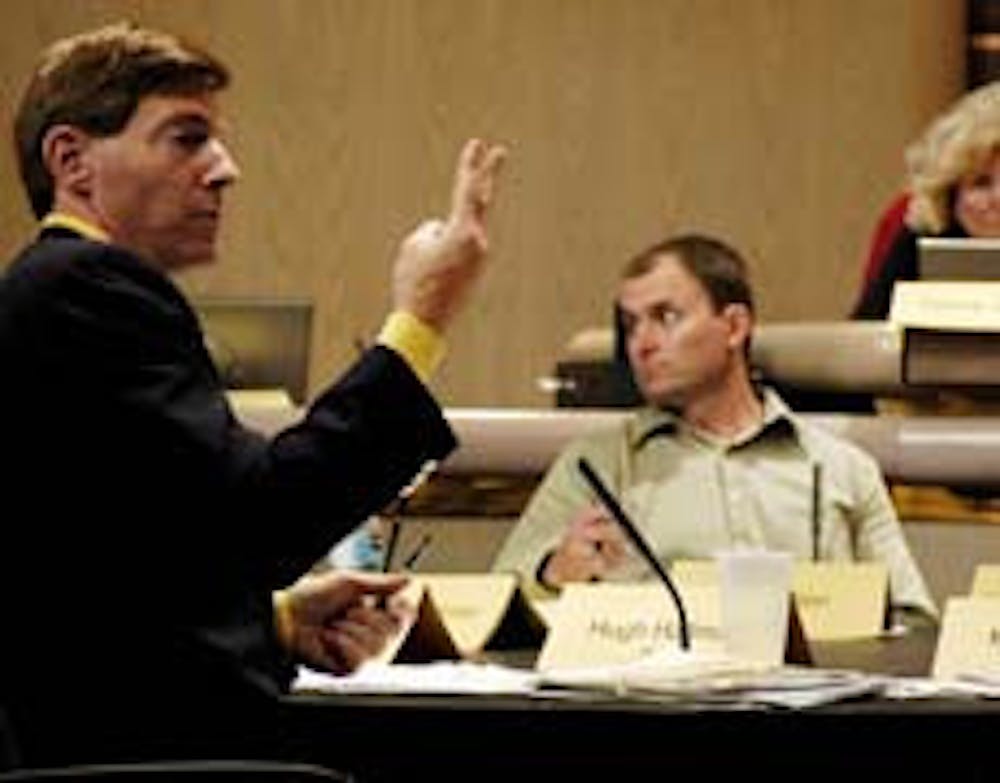Rental-property registration and asking ASU to take a stronger role in educating renters, are two ways Tempe's rental housing committee agreed the city could combat growing issues like overcrowded neighborhoods and poorly-maintained properties Tuesday.
The Ad Hoc Rental Housing Task Force has debated the issue during several meetings over a four-month period, and agreed on recommendations for the City Council at the task force's final meeting.
Tempe Mayor Hugh Hallman said he hoped the entire City Council would discuss the recommendations at a March issue review session.
New ordinances should be enacted by July 1, taking effect just before new renters move into neighborhoods in August, he added.
"There is not a more important issue in our community," Hallman said.
Councilman Ben Arredondo said the city should hire and train 10 part-time, semi-retired property code enforcement officers. These workers would proactively look for housing code violations and report them to the city.
"It's going to help us take back our neighborhoods," he said.
These workers would help enforce existing city codes, Hallman added.
Dee Haver, a task force member, said she hoped these new officers would be assertive enough to confront hostile students who openly dismissed any concerns she brought up.
"We better get some tough-skinned people," Haver said.
Members have said additional volunteer police officers could also help enforce the city's loud party ordinance, which allows Tempe to fine people who host more than one loud party in a 90-day period.
But Hallman said enforcement of the ordinance should be left only to trained officers who can handle the sometimes dangerous party atmospheres.
Another recommendation was to register all rental properties in the city to help create a public electronic database of these units.
This would help the city identify rental property owners quickly to address property code violations, said Bill Butler, another task force member.
The committee also debated whether landlords or tenants should be held responsible for violating codes.
Jim Delton, a committee member and local landlord, said he hoped the city wouldn't blame landlords for problems tenants caused, such as green swimming pools.
Arredondo and Vice Mayor Mark Mitchell said the city should add language to leases that would let landlords terminate the contracts if renters defied city codes.
Hallman said he thought both groups should be held responsible, tenants for their behavior and landlords for property upkeep.
Hallman also said he hoped ASU would work with Tempe to help spread awareness of neighborhood codes. He recommended the University supply information to students on how to be a good tenant when they enrolled.
Warren Egmond, 60, and a former ASU professor, said he didn't think this would be effective.
"Students don't have to read what [ASU] gives them, and even if they do, they don't remember it," Egmond said.
Student apathy toward new rules could be reduced through enforcement of ASU's Student Code of Conduct, Hallman said.
"That's why there are consequences for violating the Code of Conduct," he added.
Reach the reporter at grayson.steinberg@asu.edu.




